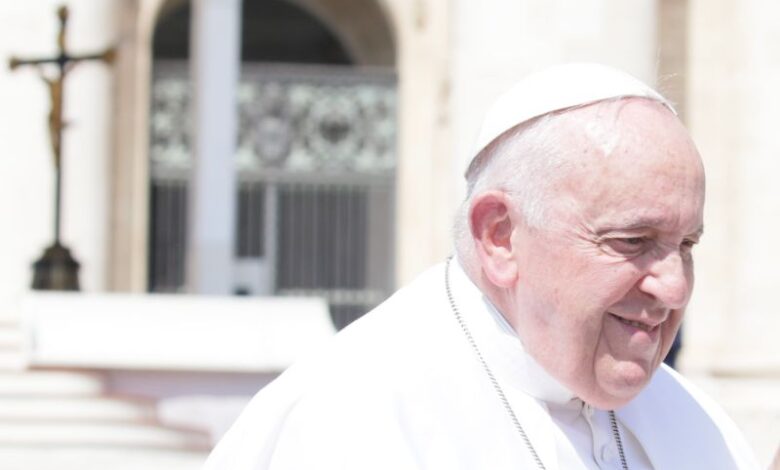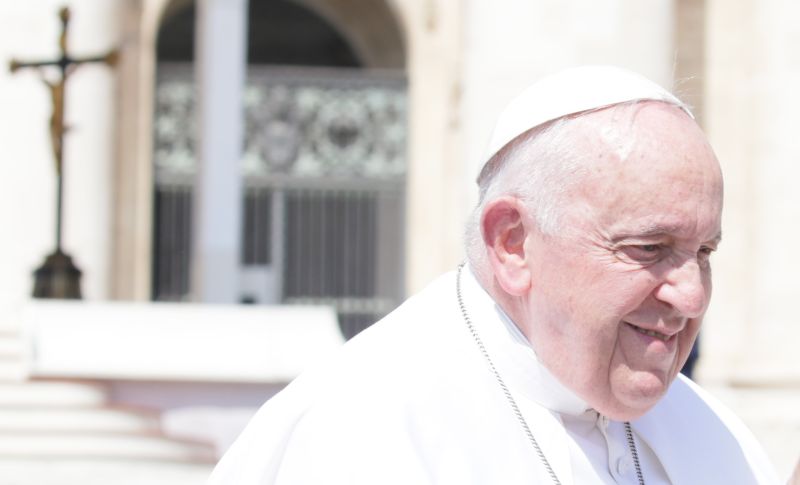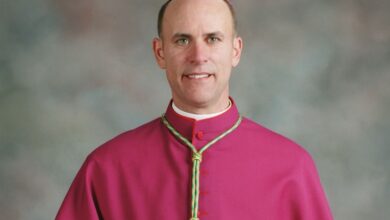Pope Francis in ‘good general condition’ one day after abdominal surgery

 Pope Francis at his general audience in St Peter’s Square on May 31, 2023. / Adi Zace/EWTN
Pope Francis at his general audience in St Peter’s Square on May 31, 2023. / Adi Zace/EWTN Rome Newsroom, Jun 8, 2023 / 05:25 am (CNA).
One day after Pope Francis’ abdominal surgery for an incisional hernia, medical staff report that the pope is “in good general condition, alert and breathing naturally,” according to the Vatican.
Vatican spokesman Matteo Bruni told journalists on June 8 that the pope’s routine follow-up examinations were good and that he will continue to rest in Rome’s Gemelli Hospital.
“The medical staff following the pontiff’s post-operative course informs us that Pope Francis had a peaceful night, managing to rest extensively,” Bruni said.
“The pope is informed of the messages of closeness and affection that have come in the last few hours and expresses his gratitude while asking for continued prayers,” he added.
In a surgery lasting three hours on June 7, a team of surgeons operated on a hernia in the pope’s abdominal wall at the site of a previous surgical incision.
Dr. Sergio Alfieri, the director of the hospital’s abdominal surgery department, said at a press conference immediately following the surgery that the hernia may have come about following past operations Francis underwent in Argentina, including for peritonitis, a redness or swelling of the lining of the abdomen often caused by appendicitis.
He said that Francis had been experiencing pain for several months due to an incisional hernia and decided on June 6 to undergo the surgery to correct it.
The 86-year-old pope has been hospitalized three times in the past two years. He was hospitalized for four days in March for a lung infection and has also dealt this year with a recurrence of diverticulitis, a painful inflammation of bulges in the large intestine following his operation in July 2021.
The surgeon said that Pope Francis, upon waking from the operation, was already cracking jokes and had asked him when the next surgery would be.
Alfieri underlined that the conditions treated by the operation on June 7 and the prior surgery of July 2021 were both benign and have been resolved.
“The pope does not have other illnesses,” he said.
Religious leaders around the world have expressed their well-wishes and prayers for Pope Francis as he recovers in hospital.
Archbishop Timothy Broglio, the president of the U.S. bishops’ conference, asked Catholics to continue to pray for the pope’s healing.
“As Pope Francis recovers from surgery, he is strengthened by faith in the healing power of our merciful God,” he said.
“Please keep Pope Francis and all those in the hospital in your prayers today and every day. Jesus always walks with us and is even closer whenever we need healing and comfort.”





